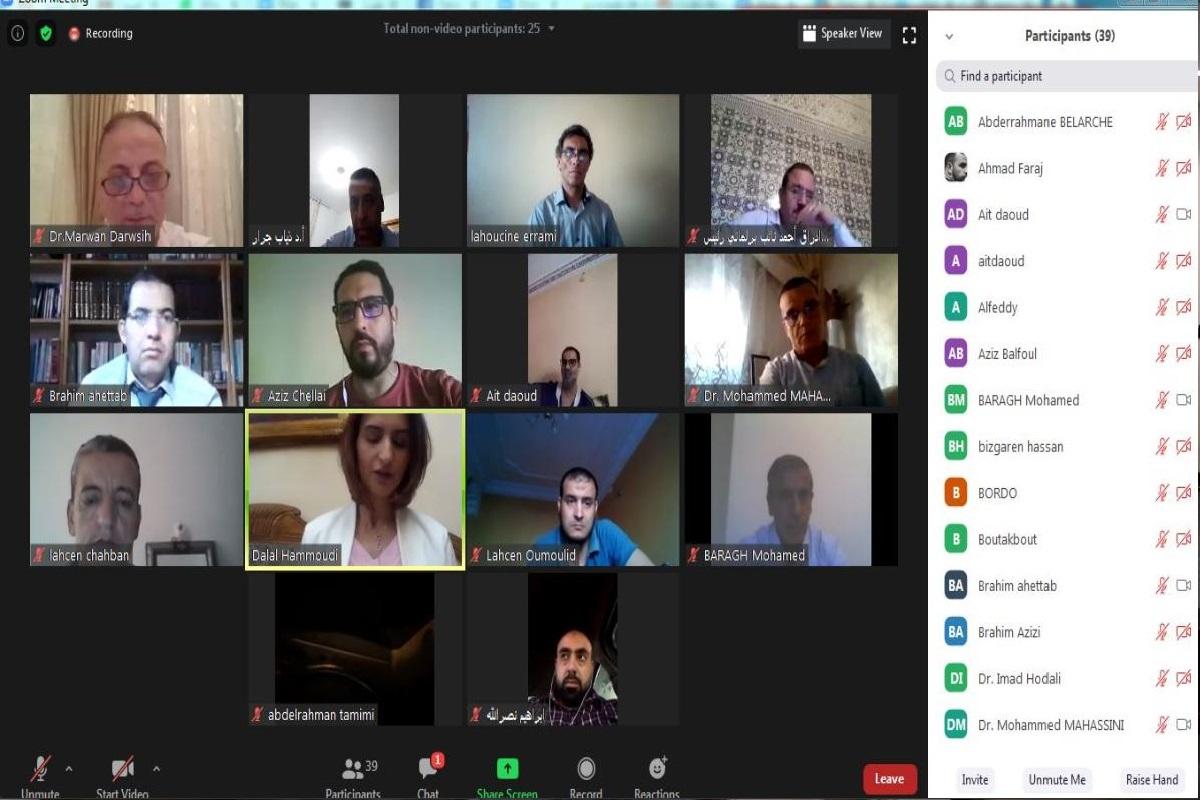
Al-Quds Open University and the Moroccan Ibn Zohr University, in cooperation with The Moroccan Institute for Policy Analysis, concluded a two days symposium, entitled: "Centralization and Decentralization amid the state of health emergency: a Reading in the comparative experiences of local authorities". Researchers from Algeria, Jordan, Lebanon, Palestine and Morocco participated in the symposium, which was held via Zoom video conferencing on 5-6 June 2020.
The symposium themes focused on the relationship between the central authorities and decentralization and the implications of the Coronavirus epidemic on the functioning of local bodies, and on the roles and responsibilities of the central authority in facing the epidemic.
The participants recommended focused on and encouraging the participation of local bodies in establishing income-generating projects to obtain stable resources that enhance their financial sustainability, expanding the powers of local governance in its broad concept, inviting local bodies to contribute to planning, enacting laws, monitoring and implementation. Participants also recommended making amendments to local laws in order to enable local bodies to take the necessary measures in the state of epidemics and natural disasters, and holding those bodies accountable to participate in drafting and monitoring the implementation of laws.Participants also stressed the importance of the role of universities in spreading awareness about epidemics, as part of their mission to serve the community, and focus on this area in its academic work as well as in its research, and the pursuit of effective communication with their communities.
The symposium also stressed the important role played by civil society bodies, including municipalities, associations and NGOs to manage health emergencies, especially in light of the presence of medical cadres who are competent and have the confidence of the civil society. It also called for strengthening decentralization, principles of free administration and local democracy, creating a balance between the central authority and elected bodies, ensuring the quality of local public work, and creating a fund for managing crises, especially epidemic and health.